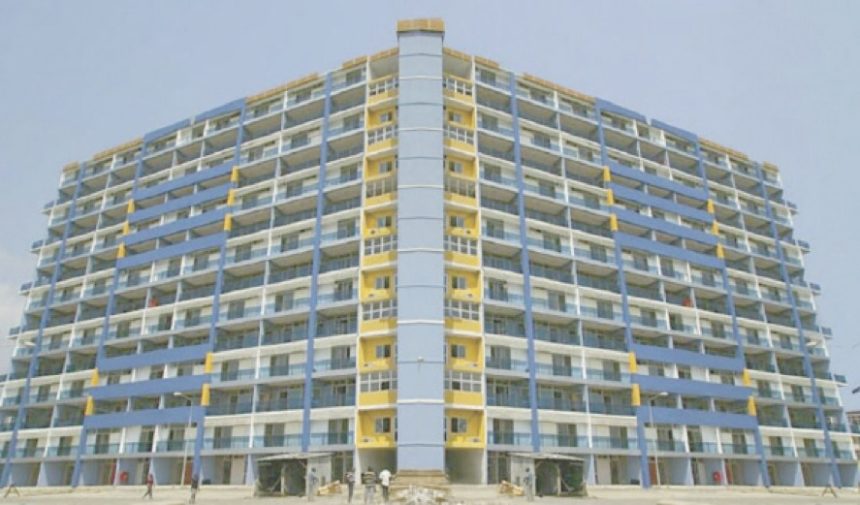Despite decades of initiatives and promises from the government and private sector, affordable housing remains an unattainable dream for millions of Nigerians.
Aimed at addressing the nation’s growing housing deficit, low-cost housing programs have repeatedly fallen short due to systemic challenges ranging from poor implementation and rising construction costs to bureaucratic hurdles and inadequate financing mechanisms.
Initially designed to bridge the housing gap, low-cost housing schemes are plagued by inefficiencies and lack of transparency, leaving many low- and middle-income earners excluded from homeownership opportunities. High mortgage rates, limited access to financing, and insufficient public awareness of housing programs further complicate the situation. As Nigeria’s population grows and urban centers like Lagos and Abuja expand, the demand for affordable housing far outpaces supply.
Developers often prioritize high-end projects, where profit margins are more attractive, leaving low-cost initiatives underfunded and underserved. This growing imbalance has widened the gap between the housing needs of the average Nigerian and the priorities of policymakers and real estate developers.

Experts believe that a comprehensive approach is the only way to address Nigeria’s housing crisis. This involves fostering stronger public-private partnerships, streamlining housing policies, and ensuring inclusivity in the allocation of housing projects. Simplified access to housing finance and transparent processes are critical steps toward making affordable housing a reality. Additionally, the government must adopt cost-effective building technologies and materials to reduce construction costs and make low-cost housing viable on a larger scale.
Urban planning is another key area requiring immediate attention. Affordable housing projects must be strategically located to provide residents with access to essential amenities and employment opportunities. Without adequate infrastructure—such as roads, water, electricity, and sanitation—low-cost housing developments are often reduced to substandard, isolated settlements, defeating their purpose.
The housing crisis is not a new challenge. During Nigeria’s First Republic, leaders like Lateef Jakande, Jim Nwobodo, and Abubakar Rimi championed affordable housing initiatives, leaving behind projects like Lagos’s Festac Extension and Mile 2 Estates. However, successive administrations failed to sustain these efforts, and corruption, nepotism, and poor governance gradually eroded the programs. Today, Nigeria faces a staggering housing deficit of 25 million units, with over 60% of Lagosians living in slums.
Rapid population growth and rural-urban migration have compounded the crisis. As rural areas remain underdeveloped, people flock to cities in search of better opportunities, putting immense strain on housing supplies in urban areas. Despite various government interventions—such as the “Housing for All by the Year 2000” initiative and the National Housing Policy of 2006—affordable housing remains largely inaccessible to most Nigerians.
Workers’ poor remuneration is another significant obstacle. Many Nigerians struggle to afford basic accommodation, let alone own homes, due to meager salaries that barely cover daily expenses. High mortgage rates and exorbitant rents have rendered government-backed housing schemes ineffective for most workers. Even with subsidies, the cost of constructing housing estates is so high that selling them at affordable rates often results in unsustainable financial deficits for the government.
Nigeria’s mortgage system also presents significant challenges. High-interest rates, stringent requirements, and limited access to mortgage facilities have made it nearly impossible for the average citizen to secure home loans. Recognizing these gaps, private sector initiatives, like Converged Dynamics Capital Services Limited’s real estate equity fund, aim to inject much-needed capital into the sector. While these efforts show promise, they remain in their early stages and require time to significantly impact the housing market.
The Nigerian Mortgage Refinancing Company (NMRC) has also taken steps to address the crisis, injecting N6 billion into the mortgage market to ease access to financing. With plans to expand its operations further, the NMRC offers hope for some relief. However, experts argue that these measures fail to address the root causes of the housing deficit, such as systemic inefficiencies, poor wages, and inadequate infrastructure.
Structured funds have emerged as a potential solution, attracting long-term investments for large-scale housing projects. Financial experts like Mrs. Monica Efe Osaghae emphasize the importance of specialized investment vehicles to bridge the funding gap in Nigeria’s housing sector. By leveraging structured funds and fostering public-private collaborations, the nation could make significant progress in reducing its housing deficit.

To truly tackle the crisis, Nigeria must adopt bold, innovative approaches that prioritize housing as a fundamental right. This includes creating policies to incentivize affordable housing development, improving urban planning, reducing construction costs, and addressing wage disparities. Transparent governance and sustained political will are essential to restoring trust and ensuring that housing programs benefit those who need them most.
The housing deficit, while daunting, also presents an opportunity for transformation. With coordinated efforts from the government, private sector, and local communities, Nigeria can create a housing system that meets the needs of its citizens. This will require strategic investments, long-term planning, and unwavering commitment to sustainable solutions.
As the nation grapples with this growing crisis, the question remains: will Nigeria finally rise to the challenge and make affordable housing a reality for its people? Or will millions continue to wait in vain for the shelter they deserve?



